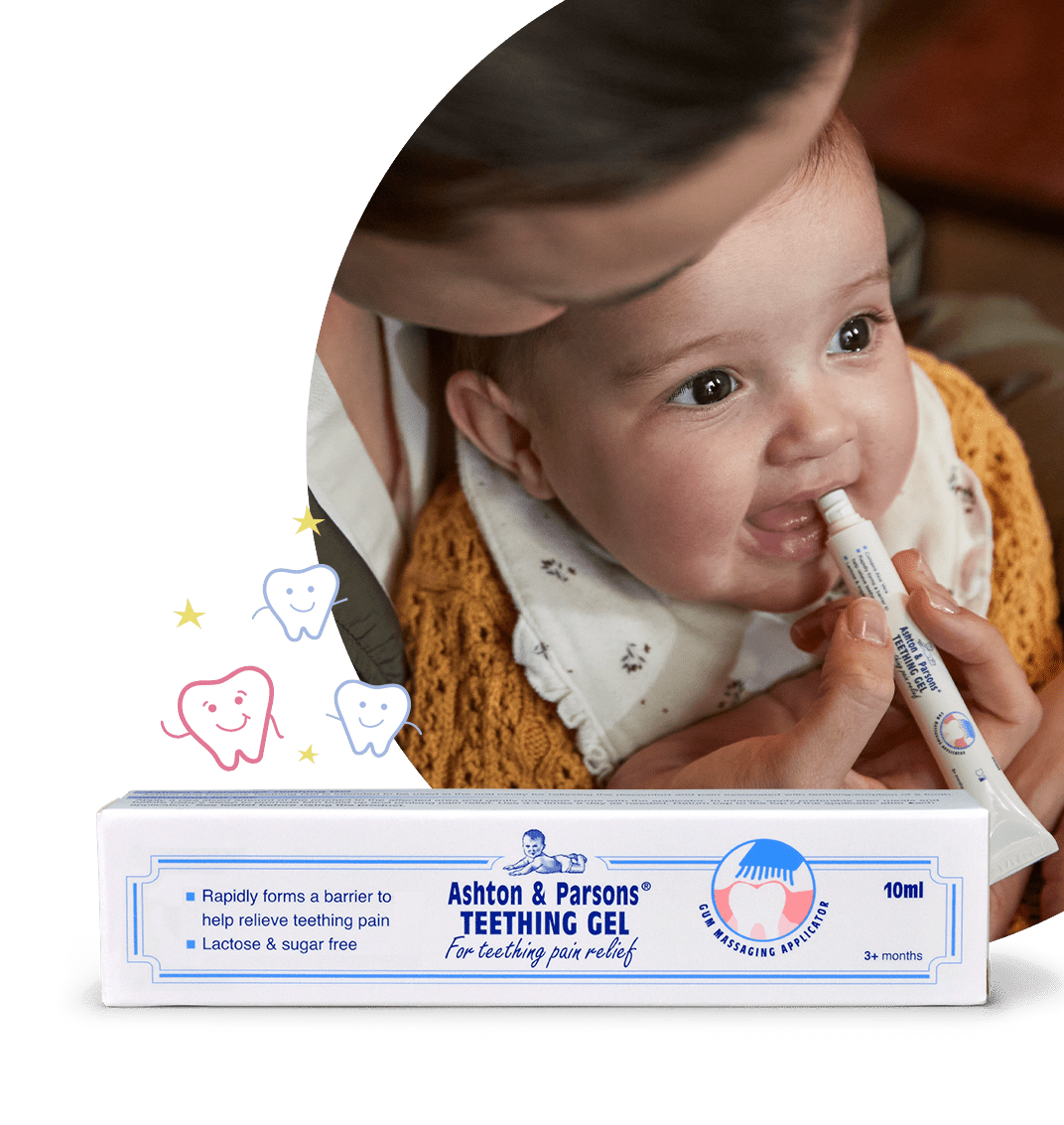Ask the Health Visitor: The Teething Process
Tracey Stone is a Health Visitor, and able to provide expert guidance on all things teething. Currently a registered practising Health Visitor in the community working with children and their families, Tracey also supports families in the online community with issues related to health and wellbeing. She is a qualified Paediatric Nurse with over 20 years’ experience and a Nurse Prescriber. She has also helped establish a respite service for Children with Special Needs.

When does teething start?
Q: My baby has been showing signs of teething since he was 3 months-old. He’s now 6 months and still no sign of any teeth coming through. How long does it take for teeth to come through? Is there anything we can do to help them along?
A: It’s possible that the signs you saw at around 3 months were the salivary glands starting to develop. This is usually when babies start to dribble a lot more and would explain the signs of such early teething. Most babies will start showing signs of teething around 6 months, but they can start a couple of months early or later. There’s no set timeline because every child is different and some may not show teeth until 12 months. Ultimately, there’s nothing you can do to speed the process up, as the teeth will develop at their own rate.
Can water aggravate teething pain?
Q: My little boy has just turned 10 months-old and he’s recently cut his first two bottom teeth. My son has always loved swimming, but recently he’s started trying to bite me in the pool. Can swimming or being in the water aggravate teething pains?
A: The water shouldn’t have any effect on your baby, the grumpiness is likely a sign of more teeth about to cut through and maybe he’s just not in the mood for a dip. Try to distract him and discourage him from biting. If he bites you, put him down or hold him away from you and tell him it’s not OK. Hopefully this will help him learn and prevent you from future harm.
Teething pain
Q: My daughter is 6 months-old and has two bottom teeth. She’s still grumpy and dribbles a lot. Are the first two teeth hurting her or are the top two on the way already?
A: If the bottom teeth are fully erupted then they’re unlikely to still be causing pain. It is very possible that her top two teeth are erupting as you suggested, though it is worth checking with a GP that she’s fine. Teething symptoms can often conceal other illnesses with similar symptoms, so it’s worth finding out if she needs any other treatment.
Is it normal for baby teeth to be wonky?
Q: My daughter is 11 months-old. Two of her teeth have come through and one of them is quite wonky. Is this normal while they are still coming through?
A: It is not uncommon for baby teeth to come out a little bit wonky. This is just positional and does not mean the tooth isn’t healthy. Teeth are very good at finding their right place and often they will correct themselves and find their right position. Teeth will come leaning inwards, outwards and twisted. Teeth are good at finding their place and often will correct themselves and find the right position. If you think the wonky teeth is linked to a dummy or thumb-sucking, then it could be worth reviewing this behaviour. However, there is no link between the positioning of baby teeth and the second set of permanent teeth. For further reassurance check with your dentist. The current NHS guidelines are to take your baby to the dentist as soon as their first milk teeth appear.
Do babies cut teeth in pairs?
Q: My little girl’s first bottom tooth has just cut through. I can see the other one but it hasn’t emerged. Are they supposed to come up together?
A: It’s difficult to put a specific time on when teeth will come through, as each child is different and it varies greatly. As a rough guide, the bottom two will come between 5-7 months, the top two from 6-8 months and the others will follow from about 9 months. Some children don’t get any teeth until their first birthday, so it’s very tough to judge. It sounds like it’s all going well for your daughter and at some point, you will begin to see the other tooth begin to peep through.
Which tooth comes first?
Q: I’m sure I can feel an incisor coming through in my baby’s mouth, but everyone tells me it will be the bottom two. Is it always the bottom two teeth that come through first?
A: In most babies, it is the bottom two that appear first. But nothing is predictable with children. I wouldn’t worry if your baby’s teeth come out of the normal pattern, it doesn’t make a difference. The world would be a boring place if we were all the same.
Tracey has been paid to take part in the Q&A.





